Fleurs du Mal Magazine


Or see the index

VPRO-boeken
Annegreet van Bergen
& Ann de Craemer
zo 21 september 2014
NPO1, 11.20 uur
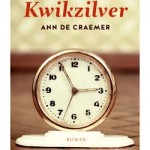 Ooit was de dagelijkse douche een wekelijkse teil, de bankrekening een papieren loonzakje en de verwarming een stoffige kolenkachel. In ‘Gouden jaren’ beschrijft Annegreet van Bergen hoe deze ongekende en razendsnelle groei ons dagelijks leven ingrijpend heeft veranderd.
Ooit was de dagelijkse douche een wekelijkse teil, de bankrekening een papieren loonzakje en de verwarming een stoffige kolenkachel. In ‘Gouden jaren’ beschrijft Annegreet van Bergen hoe deze ongekende en razendsnelle groei ons dagelijks leven ingrijpend heeft veranderd.
Ook te gast is Ann de Craemer over haar nieuwe boek Kwikzilver. Een ontroerend verhaal over een familie, een huis, een leven en een eeuw.
# Meer informatie website VPRO-boeken
fleursdumal.nl magazine
More in: - Book News, Art & Literature News

The Sorrows of Young Werther (56) by J.W. von Goethe
DECEMBER 15.
What is the matter with me, dear Wilhelm? I am afraid of myself! Is not
my love for her of the purest, most holy, and most brotherly nature? Has
my soul ever been sullied by a single sensual desire? but I will make no
protestations. And now, ye nightly visions, how truly have those mortals
understood you, who ascribe your various contradictory effects to some
invincible power! This night I tremble at the avowal–I held her in my
arms, locked in a close embrace: I pressed her to my bosom, and covered
with countless kisses those dear lips which murmured in reply soft
protestations of love. My sight became confused by the delicious
intoxication of her eyes. Heavens! is it sinful to revel again in such
happiness, to recall once more those rapturous moments with intense
delight? Charlotte! Charlotte! I am lost! My senses are bewildered, my
recollection is confused, mine eyes are bathed in tears–I am ill; and
yet I am well–I wish for nothing–I have no desires–it were better I
were gone.
Under the circumstances narrated above, a determination to quit
this world had now taken fixed possession of Werther’s soul. Since
Charlotte’s return, this thought had been the final object of all his
hopes and wishes; but he had resolved that such a step should not be
taken with precipitation, but with calmness and tranquillity, and with
the most perfect deliberation.
His troubles and internal struggles may be understood from the following
fragment, which was found, without any date, amongst his papers, and
appears to have formed the beginning of a letter to Wilhelm.
“Her presence, her fate, her sympathy for me, have power still to
extract tears from my withered brain.
“One lifts up the curtain, and passes to the other side,–that is
all! And why all these doubts and delays? Because we know not what is
behind–because there is no returning–and because our mind infers that
all is darkness and confusion, where we have nothing but uncertainty.”
His appearance at length became quite altered by the effect of his
melancholy thoughts; and his resolution was now finally and irrevocably
taken, of which the following ambiguous letter, which he addressed to
his friend, may appear to afford some proof.
The Sorrows of Young Werther (Die Leiden des jungen Werther) by J.W. von Goethe. Translated by R.D. Boylan.
To be continued
fleursdumal.nl magazine
More in: -Die Leiden des jungen Werther, Goethe, Johann Wolfgang von

Jeudi 18 septembre 2014 – 19H00
Britta Böhler & Lydie Salvayre
Rencontre animée par Margot Dijkgraaf
Rencontre
En 1933, Thomas Mann quitte Munich pour un voyage d’agrément en Suisse, avec sa femme Katia et les petits. Pendant ce temps, dans la patrie, le monde s’écroule. C’est le début de l’exil. Comment continuer à être un écrivain lorsqu’on a perdu ses lecteurs ? Voilà le sujet de La Décision, le premier roman de l’avocate néerlandaise, spécialiste de droit international, Britta Böhler.
Britta Böhler (née en Allemagne) entrera en dialogue avec Lydie Salvayre (née de parents espagnols) qui publie Pas pleurer. Un roman dans lequel elle met en regard la voix de Bernanos, témoin direct de la guerre civile espagnole, et celle de sa mère qui raconte les jours radieux de l’insurrection libertaire en 1936.
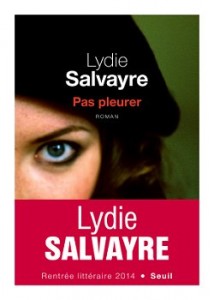 Une rencontre internationale sur les thèmes de la guerre, de la mémoire, de l’exil et de l’écriture, organisée et animée par Margot Dijkgraaf, critique littéraire aux Pays-Bas.
Une rencontre internationale sur les thèmes de la guerre, de la mémoire, de l’exil et de l’écriture, organisée et animée par Margot Dijkgraaf, critique littéraire aux Pays-Bas.
Soirée organisée par le service culturel de l’Ambassade des Pays-Bas.
Maison de la Poésie
Passage Molière
157, rue Saint-Martin – 75003 Paris
M° Rambuteau – RER Les Halles
(À lire – Britta Böhler, La Décision, trad. de l’allemand par Corinna Gepner, Stock, septembre 2014 & Lydie Salvayre, Pas pleurer, Le Seuil, septembre 2014)
# website maison de la poésie paris
fleursdumal.nl magazine
More in: - Book News, - Book Stories, Archive C-D, Margot Dijkgraaf, MONTAIGNE
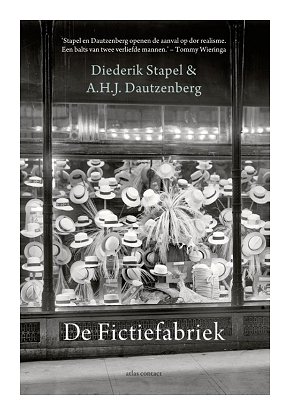
A.H.J.Dautzenberg en Diederik Stapel vertellen over hun nieuwe gezamenlijke brievenboek De Fictiefabriek. Een jaar lang schreven A.H.J. Dautzenberg en Diederik Stapel elkaar brieven. Het is een bewogen periode: Stapel probeert zijn leven weer betekenis te geven na zijn wetenschappelijke val en Dautzenberg worstelt nog altijd met (de gevolgen van) zijn maatschappelijk engagement.
Psycholoog Diederik Stapel en schrijver Anton Dautzenberg wonen allebei in Tilburg. Ze leerden elkaar kennen nadat de eerstgenoemde was ontmaskerd als fraudeur.
Stapel en Dautzenberg begonnen een correspondentie die nu is uitgegeven door uitgeverij Atlas/Contact. De fictiefabriek.
Je moet niet meer buigen, zei Anton Dautzenberg aan het begin van de vriendschap tegen Stapel.
Waarom zei hij dat?
En waarom beklimt Stapel dit podium?
Wat gebeurt er in de fictiefabriek?
Een jaar lang schreven Diederik Stapel en A.H.J. Dautzenberg elkaar brieven. Allebei zijn ze op zoek naar houvast. De twee vinden steun bij elkaar en samen verkennen ze de kracht van fictie. De Fictiefabriek is een bevrijdingsroman in brieven en een bevlogen ode aan de verbeeldingskracht
Paperback 320 blz.
ISBN 9789025442699
september 2014
Uitgeverij Atlas-Contact Amsterdam
Schrijver en econoom A.H.J. Dautzenberg (Heerlen, 1967) maakte naam door zijn provocerende spel met feit en fictie. Hij publiceerde met succes verhalen, romans, essays en poëzie. Met De Fictiefabriek maakt hij zijn theaterdebuut.
Ex-wetenschapper Diederik Stapel (Oegstgeest, 1966) werd vooral bekend vanwege zijn opzienbarende wetenschappelijke fraude. Tegenwoordig probeert hij zijn extreme behoefte aan Eureka-momenten beter te rijmen met zijn liefde voor postmoderne opvattingen over de werkelijkheid.
A.H.J.Dautzenberg & Diederik Stapel
VPRO-boeken, zondag 14 september, NPO1, 11.20 uur
fleursdumal.nl magazine
More in: - Book News, Art & Literature News, DICTIONARY OF IDEAS

De Britse historicus Simon Schama (1945), auteur van wereldwijde klassiekers als The Embarrassment of Riches (1987) en Landscape and Memory (1995), is dit najaar te gast bij het Nexus Instituut. Schama heeft met zijn boeken een reusachtig en blijvend stempel gezet op het beeld dat Nederlanders van zichzelf hebben. Momenteel legt hij de laatste hand aan het tweede en laatste deel van zijn monumentale The Story of the Jews, na het grote succes van zijn gelijknamige BBC-serie. Simon Schama wijdt zijn Nexus-lezing aan ‘History Lessons’, over de vraag wat de geschiedenis ons uiteindelijk aan kennis en wijsheid oplevert. In het gesprek dat Rob Riemen met hem voerde voor Nexus 65, De universiteit van het leven, merkt Schama op:
“Ik zie het als mijn taak met alle middelen die ik tot mijn beschikking heb, het besef over te dragen van wat het betekent mens te zijn. De geschiedenis draagt een tragisch masker. Als we de volledige complexiteit van wat de menselijke samenleving is, niet begrijpen, de manier waarop die zich gedraagt en datgene waartoe de mens in staat is, dan begrijpen we niet goed wat er op het spel staat en welke strijd er gaande is. Het eervolle aan mijn werk als historicus is dat je een horzel bent, een doorn in het oog van de zelfgenoegzamen en de machthebbers.”
U kunt nu al uw plaatsen reserveren voor de Nexus-lezing op 22 november in de aula van Tilburg University.
Entreekaarten
Toegankelijk voor alle geïnteresseerden, vooraf aanmelden is verplicht.
– Standaardentreekaarten à € 45,-
– Abonneekaarten à € 30,- (maximaal 2 kaarten met korting p.p.)
– Jongerenkaart € 25,- (t/m 25 jaar, 1 p.p.)
– Connect-kaart € 20,- (t/m 35 jaar, 1 p.p.)
– Vriend van Nexus-kaarten zijn gratis (max. 2 voor Amici, max. 4 voor Patroni en Maecenates)
Neem nu een abonnement op het tijdschrift Nexus, steun het Nexus Instituut als Vriend of word lid van Nexus Connect en profiteer direct van de korting op de entreekaarten.
 Simon Schama
Simon Schama
Verenigd Koninkrijk, 1945
Simon Schama zette zijn eerste schreden op het pad van de geschiedschrijving in een tijd dat de academische wereld steeds hermetischer werd. Tegen de stroom in werd hij wereldberoemd historicus, bekend van zijn televisieseries, waaronder A History of Britain (2000) en The Power of Art (2006), en van boeken als The Embarrassment of Riches: An Interpretation of Dutch Culture in the Golden Age (1987; Ned. vert. Overvloed en onbehagen: de Nederlandse cultuur in de Gouden Eeuw, 1988), Landscape and Memory (1995; Ned. vert. Landschap en herinnering, 2009) en het recente The Story of the Jews, Volume I: Finding the Words, 1000 BCE-1492 CE (2013). Zijn boeken zijn in meer dan vijftien talen vertaald. Schama studeerde aan Cambridge, doceerde aan Oxford en Harvard en is nu universiteitshoogleraar in de geschiedenis en kunstgeschiedenis aan Columbia University in New York.
22 november 2014
14.30 – 17.00
Tilburg University
fleursdumal.nl magazine
More in: Art & Literature News, LITERARY MAGAZINES, Nexus Instituut, Simon Schama
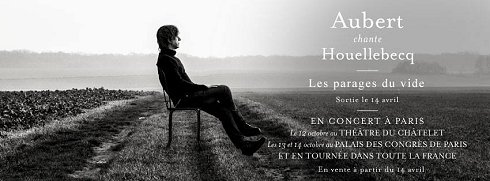
Jean-Louis Aubert & Michel Houellebecq – Performance
Avant le démarrage de sa tournée officielle dans toute la France, Jean-Louis Aubert sera sur scène avec Michel Houellebecq pour une performance unique.
L’écrivain et le chanteur seront à la Maison de la Poésie le 13 septembre pour une soirée exceptionnelle autour des Parages du vide, le dernier album de Jean-Louis Aubert sorti en avril dernier, qui adapte des poèmes de Michel Houellebecq.
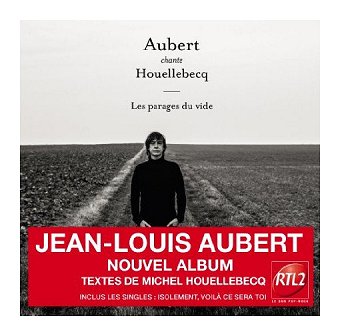
Maison de la Poésie
Passage Molière
157, rue Saint-Martin
75003 Paris
Jean-Louis Aubert et Michel Houellebecq – Isolement [clip officiel]
fleursdumal.nl magazine
More in: Archive G-H, Art & Literature News, Michel Houellebecq, MUSIC, The talk of the town
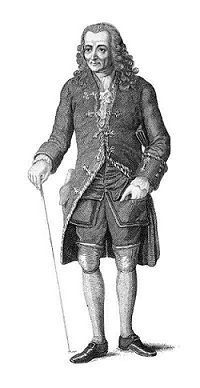
Voltaire
(1694-1778)
À Madame de Fontaine-Martel
Ô très singulière Martel,
J’ai pour vous estime profonde ;
C’est dans votre petit hôtel,
C’est sur vos soupers que je fonde
Mon plaisir, le seul bien réel
Qu’un honnête homme ait en ce monde.
Il est vrai qu’un peu je vous gronde ;
Mais, malgré cette liberté,
Mon cœur vous trouve, en vérité,
Femme à peu de femmes seconde ;
Car sous vos cornettes de nuit,
Sans préjugés et sans faiblesse,
Vous logez esprit qui séduit,
Et qui tient fort à la sagesse.
Or votre sagesse n’est pas
Cette pointilleuse harpie
Qui raisonne sur tous les cas,
Et qui, triste sœur de l’Envie,
Ouvrant un gosier édenté,
Contre la tendre volupté
Toujours prêche, argumente et crie
Mais celle qui si doucement,
Sans efforts et sans industrie,
Se bornant toute au sentiment,
Sait jusqu’au dernier moment
Répandre un charme sur la vie.
Voyez-vous pas de tous côtés
De très décrépites beautés,
Pleurant de n’être plus aimables,
Dans leur besoin de passion
Ne pouvant rester raisonnables,
S’affolier de dévotion,
Et rechercher l’ambition
D’être bégueules respectables ?
Bien loin de cette triste erreur,
Vous avez, au lieu de vigiles,
Des soupers longs, gais et tranquilles ;
Des vers aimables et faciles,
Au lieu des fatras inutiles
De Quesnel et de le Tourneur ;
Voltaire, au lieu d’un directeur ;
Et, pour mieux chasser toute angoisse,
Au curé préférant Campra,
Vous avez loge à l’opéra
Au lieu de banc dans la paroisse :
Et ce qui rend mon sort plus doux,
C’est que ma maîtresse, chez vous,
La liberté, se voit logée ;
Cette liberté mitigée,
À l’œil ouvert, au front serein,
À la démarche dégagée,
N’étant ni prude, ni catin,
Décente, et jamais arrangée ;
Souriant d’un souris badin
À ces paroles chatouilleuses
Qui font baisser un œil malin
À mesdames les précieuses.
C’est là qu’on trouve la gaîté,
Cette sœur de la liberté,
Jamais aigre dans la satire,
Toujours vive dans les bons mots,
Se moquant quelquefois des sots,
Et très souvent, mais à propos,
Permettant au sage de rire.
Que le ciel bénisse le cours
D’un sort aussi doux que le vôtre !
Martel, l’automne de vos jours
Vaut mieux que le printemps d’une autre.
Voltaire poetry
fleursdumal.nl magazine
More in: Archive U-V, MONTAIGNE, Voltaire

The Sorrows of Young Werther (55) by J.W. von Goethe
DECEMBER 12.
Dear Wilhelm, I am reduced to the condition of those unfortunate
wretches who believe they are pursued by an evil spirit. Sometimes I am
oppressed, not by apprehension or fear, but by an inexpressible internal
sensation, which weighs upon my heart, and impedes my breath! Then
I wander forth at night, even in this tempestuous season, and feel
pleasure in surveying the dreadful scenes around me.
Yesterday evening I went forth. A rapid thaw had suddenly set in: I
had been informed that the river had risen, that the brooks had all
overflowed their banks, and that the whole vale of Walheim was under
water! Upon the stroke of twelve I hastened forth. I beheld a
fearful sight. The foaming torrents rolled from the mountains in the
moonlight,–fields and meadows, trees and hedges, were confounded
together; and the entire valley was converted into a deep lake, which
was agitated by the roaring wind! And when the moon shone forth, and
tinged the black clouds with silver, and the impetuous torrent at
my feet foamed and resounded with awful and grand impetuosity, I was
overcome by a mingled sensation of apprehension and delight. With
extended arms I looked down into the yawning abyss, and cried,
“Plunge!'” For a moment my senses forsook me, in the intense delight of
ending my sorrows and my sufferings by a plunge into that gulf! And then
I felt as if I were rooted to the earth, and incapable of seeking an end
to my woes! But my hour is not yet come: I feel it is not. O Wilhelm,
how willingly could I abandon my existence to ride the whirlwind, or to
embrace the torrent! and then might not rapture perchance be the portion
of this liberated soul?
I turned my sorrowful eyes toward a favourite spot, where I was
accustomed to sit with Charlotte beneath a willow after a fatiguing
walk. Alas! it was covered with water, and with difficulty I found even
the meadow. And the fields around the hunting-lodge, thought I. Has our
dear bower been destroyed by this unpitying storm? And a beam of past
happiness streamed upon me, as the mind of a captive is illumined by
dreams of flocks and herds and bygone joys of home! But I am free from
blame. I have courage to die! Perhaps I have,–but I still sit here,
like a wretched pauper, who collects fagots, and begs her bread from
door to door, that she may prolong for a few days a miserable existence
which she is unwilling to resign.
The Sorrows of Young Werther (Die Leiden des jungen Werther) by J.W. von Goethe. Translated by R.D. Boylan.
To be continued
fleursdumal.nl magazine
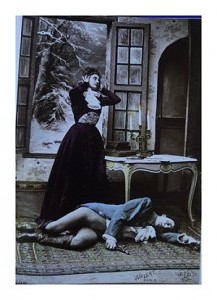
More in: -Die Leiden des jungen Werther, Goethe, Johann Wolfgang von

The Sorrows of Young Werther (54) by J.W. von Goethe
DECEMBER 6.
How her image haunts me! Waking or asleep, she fills my entire soul!
Soon as I close my eyes, here, in my brain, where all the nerves of
vision are concentrated, her dark eyes are imprinted. Here–I do not
know how to describe it; but, if I shut my eyes, hers are immediately
before me: dark as an abyss they open upon me, and absorb my senses.
And what is man–that boasted demigod? Do not his powers fail when he
most requires their use? And whether he soar in joy, or sink in sorrow,
is not his career in both inevitably arrested? And, whilst he fondly
dreams that he is grasping at infinity, does he not feel compelled to
return to a consciousness of his cold, monotonous existence?
THE EDITOR TO THE READER.
It is a matter of extreme regret that we want original evidence of the
last remarkable days of our friend; and we are, therefore, obliged
to interrupt the progress of his correspondence, and to supply the
deficiency by a connected narration.
I have felt it my duty to collect accurate information from the mouths
of persons well acquainted with his history. The story is simple; and
all the accounts agree, except in some unimportant particulars. It is
true, that, with respect to the characters of the persons spoken of,
opinions and judgments vary.
We have only, then, to relate conscientiously the facts which our
diligent labour has enabled us to collect, to give the letters of the
deceased, and to pay particular attention to the slightest fragment from
his pen, more especially as it is so difficult to discover the real and
correct motives of men who are not of the common order.
Sorrow and discontent had taken deep root in Werther’s soul, and
gradually imparted their character to his whole being. The harmony of
his mind became completely disturbed; a perpetual excitement and mental
irritation, which weakened his natural powers, produced the saddest
effects upon him, and rendered him at length the victim of an exhaustion
against which he struggled with still more painful efforts than he had
displayed, even in contending with his other misfortunes. His mental
anxiety weakened his various good qualities; and he was soon converted
into a gloomy companion, always unhappy and unjust in his ideas, the
more wretched he became. This was, at least, the opinion of Albert’s
friends. They assert, moreover, that the character of Albert himself had
undergone no change in the meantime: he was still the same being whom
Werther had loved, honoured, and respected from the commencement. His
love for Charlotte was unbounded: he was proud of her, and desired that
she should be recognised by every one as the noblest of created beings.
Was he, however, to blame for wishing to avert from her every appearance
of suspicion? or for his unwillingness to share his rich prize with
another, even for a moment, and in the most innocent manner? It is
asserted that Albert frequently retired from his wife’s apartment during
Werther’s visits; but this did not arise from hatred or aversion to
his friend, but only from a feeling that his presence was oppressive to
Werther.
Charlotte’s father, who was confined to the house by indisposition, was
accustomed to send his carriage for her, that she might make excursions
in the neighbourhood. One day the weather had been unusually severe, and
the whole country was covered with snow.
Werther went for Charlotte the following morning, in order that, if
Albert were absent, he might conduct her home.
The beautiful weather produced but little impression on his troubled
spirit. A heavy weight lay upon his soul, deep melancholy had taken
possession of him, and his mind knew no change save from one painful
thought to another.
As he now never enjoyed internal peace, the condition of his fellow
creatures was to him a perpetual source of trouble and distress. He
believed he had disturbed the happiness of Albert and his wife; and,
whilst he censured himself strongly for this, he began to entertain a
secret dislike to Albert.
His thoughts were occasionally directed to this point. “Yes,” he would
repeat to himself, with ill-concealed dissatisfaction, “yes, this is,
after all, the extent of that confiding, dear, tender, and sympathetic
love, that calm and eternal fidelity! What do I behold but satiety and
indifference? Does not every frivolous engagement attract him more than
his charming and lovely wife? Does he know how to prize his happiness?
Can he value her as she deserves? He possesses her, it is true, I know
that, as I know much more, and I have become accustomed to the thought
that he will drive me mad, or, perhaps, murder me. Is his friendship
toward me unimpaired? Does he not view my attachment to Charlotte as
an infringement upon his rights, and consider my attention to her as a
silent rebuke to himself? I know, and indeed feel, that he dislikes me,
that he wishes for my absence, that my presence is hateful to him.”
He would often pause when on his way to visit Charlotte, stand still, as
though in doubt, and seem desirous of returning, but would nevertheless
proceed; and, engaged in such thoughts and soliloquies as we have
described, he finally reached the hunting-lodge, with a sort of
involuntary consent.
Upon one occasion he entered the house; and, inquiring for Charlotte,
he observed that the inmates were in a state of unusual confusion.
The eldest boy informed him that a dreadful misfortune had occurred
at Walheim,–that a peasant had been murdered! But this made little
impression upon him. Entering the apartment, he found Charlotte engaged
reasoning with her father, who, in spite of his infirmity, insisted on
going to the scene of the crime, in order to institute an inquiry. The
criminal was unknown; the victim had been found dead at his own door
that morning. Suspicions were excited: the murdered man had been in
the service of a widow, and the person who had previously filled the
situation had been dismissed from her employment.
As soon as Werther heard this, he exclaimed with great excitement,
“Is it possible! I must go to the spot–I cannot delay a moment!” He
hastened to Walheim. Every incident returned vividly to his remembrance;
and he entertained not the slightest doubt that that man was the
murderer to whom he had so often spoken, and for whom he entertained
so much regard. His way took him past the well-known lime trees, to the
house where the body had been carried; and his feelings were greatly
excited at the sight of the fondly recollected spot. That threshold
where the neighbours’ children had so often played together was stained
with blood; love and attachment, the noblest feelings of human nature,
had been converted into violence and murder. The huge trees stood there
leafless and covered with hoarfrost; the beautiful hedgerows which
surrounded the old churchyard wall were withered; and the gravestones,
half covered with snow, were visible through the openings.
As he approached the inn, in front of which the whole village was
assembled, screams were suddenly heard. A troop of armed peasants was
seen approaching, and every one exclaimed that the criminal had been
apprehended. Werther looked, and was not long in doubt. The prisoner
was no other than the servant, who had been formerly so attached to the
widow, and whom he had met prowling about, with that suppressed anger
and ill-concealed despair, which we have before described.
“What have you done, unfortunate man?” inquired Werther, as he advanced
toward the prisoner. The latter turned his eyes upon him in silence, and
then replied with perfect composure; “No one will now marry her, and
she will marry no one.” The prisoner was taken into the inn, and Werther
left the place. The mind of Werther was fearfully excited by this
shocking occurrence. He ceased, however, to be oppressed by his usual
feeling of melancholy, moroseness, and indifference to everything
that passed around him. He entertained a strong degree of pity for the
prisoner, and was seized with an indescribable anxiety to save him from
his impending fate. He considered him so unfortunate, he deemed his
crime so excusable, and thought his own condition so nearly similar,
that he felt convinced he could make every one else view the matter in
the light in which he saw it himself. He now became anxious to undertake
his defence, and commenced composing an eloquent speech for the
occasion; and, on his way to the hunting-lodge, he could not refrain
from speaking aloud the statement which he resolved to make to the
judge.
Upon his arrival, he found Albert had been before him: and he was a
little perplexed by this meeting; but he soon recovered himself, and
expressed his opinion with much warmth to the judge. The latter shook,
his head doubtingly; and although Werther urged his case with the utmost
zeal, feeling, and determination in defence of his client, yet, as we
may easily suppose, the judge was not much influenced by his appeal.
On the contrary, he interrupted him in his address, reasoned with
him seriously, and even administered a rebuke to him for becoming
the advocate of a murderer. He demonstrated, that, according to this
precedent, every law might be violated, and the public security utterly
destroyed. He added, moreover, that in such a case he could himself do
nothing, without incurring the greatest responsibility; that everything
must follow in the usual course, and pursue the ordinary channel.
Werther, however, did not abandon his enterprise, and even besought the
judge to connive at the flight of the prisoner. But this proposal
was peremptorily rejected. Albert, who had taken some part in the
discussion, coincided in opinion with the judge. At this Werther became
enraged, and took his leave in great anger, after the judge had more
than once assured him that the prisoner could not be saved.
The excess of his grief at this assurance may be inferred from a note we
have found amongst his papers, and which was doubtless written upon this
very occasion.
“You cannot be saved, unfortunate man! I see clearly that we cannot be
saved!”
Werther was highly incensed at the observations which Albert had made
to the judge in this matter of the prisoner. He thought he could detect
therein a little bitterness toward himself personally; and although,
upon reflection, it could not escape his sound judgment that their view
of the matter was correct, he felt the greatest possible reluctance to
make such an admission.
A memorandum of Werther’s upon this point, expressive of his general
feelings toward Albert, has been found amongst his papers.
“What is the use of my continually repeating that he is a good and
estimable man? He is an inward torment to me, and I am incapable of
being just toward him.”
One fine evening in winter, when the weather seemed inclined to thaw,
Charlotte and Albert were returning home together. The former looked
from time to time about her, as if she missed Werther’s company. Albert
began to speak of him, and censured him for his prejudices. He
alluded to his unfortunate attachment, and wished it were possible
to discontinue his acquaintance. “I desire it on our own account,” he
added; “and I request you will compel him to alter his deportment toward
you, and to visit you less frequently. The world is censorious, and I
know that here and there we are spoken of.” Charlotte made no reply,
and Albert seemed to feel her silence. At least, from that time he never
again spoke of Werther; and, when she introduced the subject, he allowed
the conversation to die away, or else he directed the discourse into
another channel.
The vain attempt Werther had made to save the unhappy murderer was the
last feeble glimmering of a flame about to be extinguished. He sank
almost immediately afterward into a state of gloom and inactivity, until
he was at length brought to perfect distraction by learning that he
was to be summoned as a witness against the prisoner, who asserted his
complete innocence.
His mind now became oppressed by the recollection of every misfortune
of his past life. The mortification he had suffered at the ambassador’s,
and his subsequent troubles, were revived in his memory. He became
utterly inactive. Destitute of energy, he was cut off from every pursuit
and occupation which compose the business of common life; and he became
a victim to his own susceptibility, and to his restless passion for the
most amiable and beloved of women, whose peace he destroyed. In this
unvarying monotony of existence his days were consumed; and his powers
became exhausted without aim or design, until they brought him to a
sorrowful end.
A few letters which he left behind, and which we here subjoin, afford
the best proofs of his anxiety of mind and of the depth of his passion,
as well as of his doubts and struggles, and of his weariness of life.
The Sorrows of Young Werther (Die Leiden des jungen Werther) by J.W. von Goethe. Translated by R.D. Boylan.
To be continued
fleursdumal.nl magazine
More in: -Die Leiden des jungen Werther, Goethe, Johann Wolfgang von
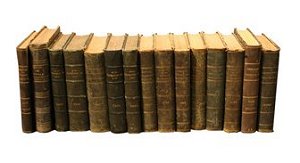
17e editie
Boeken
Rond
Het
Paleis
In het centrum van Tilburg
op zondag 31 augustus 2014
Op zondag 31 augustus a.s. wordt in Tilburg voor de zeventiende maal de boekenmarkt ‘Boeken rond het Paleis’ gehouden. Van 10.00 tot 17.00 uur kunnen de bezoekers weer hun slag slaan bij hun rondgang langs de meer dan 250 kramen. Leesvoer, te kust en te keur.
fleursdumal.nl magazine
More in: - Book Lovers, Art & Literature News
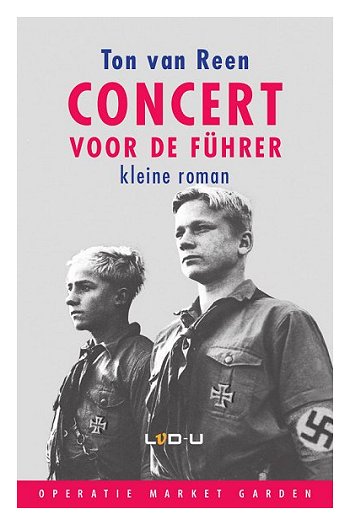
CONCERT VOOR DE FÜHRER van TON VAN REEN verscheen eerder bij Uitgeverij De Geus. Deze derde druk wordt gepubliceerd door Uitgeverij Léon van Dorp. Het boek verschijnt opnieuw vanwege de herdenking in september van Operatie Market Garden, een geallieerd offensief in september 1944 om Nederland te bevrijden. Het was deels een mislukking omdat de laatste brug een brug te ver bleek en het westen van Nederland te maken kreeg met de hongerwinter.
Vlak voordat de geallieerden in september 1944 Operatie Market Garden inzetten, wordt de jonge Duitse soldaat Hermann tijdens een verkenningspatrouille alleen op onderzoek uitgestuurd. Hij bevindt zich, in de buurt van Grave, op bekend terrein. Zijn Nederlandse moeder komt er vandaan en hij is er vaak op vakantie geweest bij zijn grootouders.
De onverwachte geallieerde aanval brengt Hermann letterlijk tussen twee vuren: dat van de vijand die niet zijn persoonlijke vijand is en dat van het Duitse leger dat hem, als gedwongen lid van de Hitlerjugend, tegen zijn wil in het leger heeft ingelijfd.
Hermann vlucht een kerk binnen. Het orgel in de gewijde ruimte doet hem de oorlog even vergeten. Als hij het instrument aanraakt weet hij het: dit is het orgel waarop hij zijn leven lang al wilde spelen. Hij neemt plaats achter het orgel en speelt. Het wordt een concert voor zichzelf en voor zijn vriend en medesoldaat Manfred Reifsche, het wonderkind op de piano. Herinneringen aan zijn jeugd vermengen zich met gedachten aan Manfred, die als deserteur omgekomen is door het vuurpeloton.
Terwijl buiten de oorlog in alle hevigheid woedt, levert Hermann een innerlijke strijd met een gebeurtenis die zijn jonge leven zo zwaar heeft getekend dat hij niet meer aan het noodlot kan ontkomen.
Het verhaal is gebaseerd op een ware gebeurtenis in het kleine dorp Velp bij Grave.
CONCERT VOOR DE FÜHRER van TON VAN REEN verschijnt deze maand bij Uitgeverij Leon van Dorp. Uitgeverij Leon van Dorp is een jonge uitgeverij die zich specialiseert in literatuur, wetenschap en regionale geschiedenis.
fleursdumal.nl magazine
More in: - Book News, Art & Literature News, Reen, Ton van, Ton van Reen

The Sorrows of Young Werther (53) by J.W. von Goethe
DECEMBER 1.
Wilhelm, the man about whom I wrote to you--that man so enviable in his
misfortunes--was secretary to Charlotte's father; and an unhappy passion
for her which he cherished, concealed, and at length discovered, caused
him to be dismissed from his situation. This made him mad. Think, whilst
you peruse this plain narration, what an impression the circumstance has
made upon me! But it was related to me by Albert with as much calmness
as you will probably peruse it.
DECEMBER 4.
I implore your attention. It is all over with me. I can support this
state no longer. To-day I was sitting by Charlotte. She was playing
upon her piano a succession of delightful melodies, with such intense
expression! Her little sister was dressing her doll upon my lap. The
tears came into my eyes. I leaned down, and looked intently at her
wedding-ring: my tears fell--immediately she began to play that
favourite, that divine, air which has so often enchanted me. I felt
comfort from a recollection of the past, of those bygone days when that
air was familiar to me; and then I recalled all the sorrows and the
disappointments which I had since endured. I paced with hasty strides
through the room, my heart became convulsed with painful emotions. At
length I went up to her, and exclaimed With eagerness, "For Heaven's
sake, play that air no longer!" She stopped, and looked steadfastly at
me. She then said, with a smile which sunk deep into my heart, "Werther,
you are ill: your dearest food is distasteful to you. But go, I entreat
you, and endeavour to compose yourself." I tore myself away. God, thou
seest my torments, and wilt end them!
The Sorrows of Young Werther (Die Leiden des jungen Werther) by J.W. von Goethe. Translated by R.D. Boylan.
To be continued
fleursdumal.nl magazine
More in: -Die Leiden des jungen Werther, Goethe, Johann Wolfgang von
Thank you for reading Fleurs du Mal - magazine for art & literature